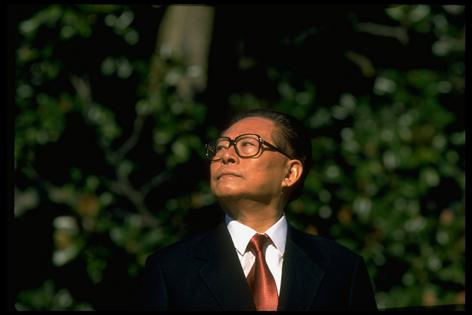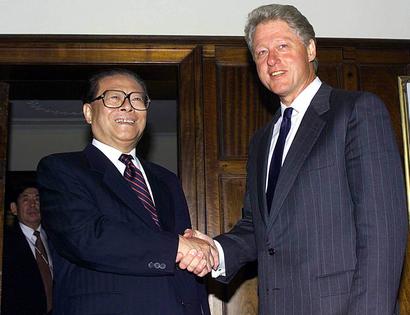Jiang Zemin propelled China's economic rise in the world, leaving his successors to deal with the massive inequality that followed
Published in News & Features
By the summer of 1989, a series of problems were threatening China’s stability. Soaring inflation was undermining the economy at home while the violent suppression of Tiananmen Square demonstrations had left it largely a pariah state abroad. Yet within a few years the nation rebounded – beginning two decades of high economic growth, membership in the largest trading club in the world and international acceptance on the global stage.
That transition came thanks in no small part to an underestimated, Soviet-trained electrical engineer – former Chinese President Jiang Zemin, who died on Nov. 30, 2022, at the age of 96.
I first traveled to and studied in China in 1992. At that time, the still powerful former leader Deng Xiaoping was publicly criticizing Jiang’s more conservative approach to the economy in a series of visits and talks he gave during what became known as Deng’s “Southern Tour.” Eventually Jiang fell in line and supported Deng’s liberalization measures and the idea of economic transformation. Yet while Jiang’s subsequent policies laid a strong foundation for China’s growth, they also likely sowed the seeds of excess that set the stage for current President Xi Jinping’s rise.
Jiang was picked to lead the country as general secretary in June 1989, after the ouster of former leader Zhao Ziyang for Zhao’s conciliatory approach towards the Tiananmen Square protesters.
Within three years Jiang embarked on a grand experiment together with Deng and then-Vice Premier Zhu Rongji, which required Jiang to do what others had been unable or unwilling to do: force the restructuring of inefficient state-owned enterprises in a wide range of sectors. This resulted in the laying off of millions of workers who had expected such jobs to be lifelong “iron rice bowls.”
From 1998 to 2002, approximately 34 million people were fired as China privatized hundreds of state-owned enterprises and shuttered thousands more.
This concerted effort proved an important and necessary step toward preparing Chinese companies for more direct market competition and integration with the world economy by the turn of the century.
Jiang’s real influence began upon Deng’s death in February 1997.
In July of that year, he presided over the handover of Hong Kong to the mainland. He then proved an able leader during the macroeconomic storm of the Asian financial crisis that began that same month. China quickly recovered and by 2001 had both acceded to the World Trade Organization and won the bid to host the 2008 Summer Olympic Games.
By 2002 China’s economy had grown to represent over 4% of the global economy. Jiang sought to reinforce such economic dynamism through more formal means, and revised the constitution that same year to formally allow corporate elite and private business entrepreneurs into the Chinese Communist Party.
...continued











Comments